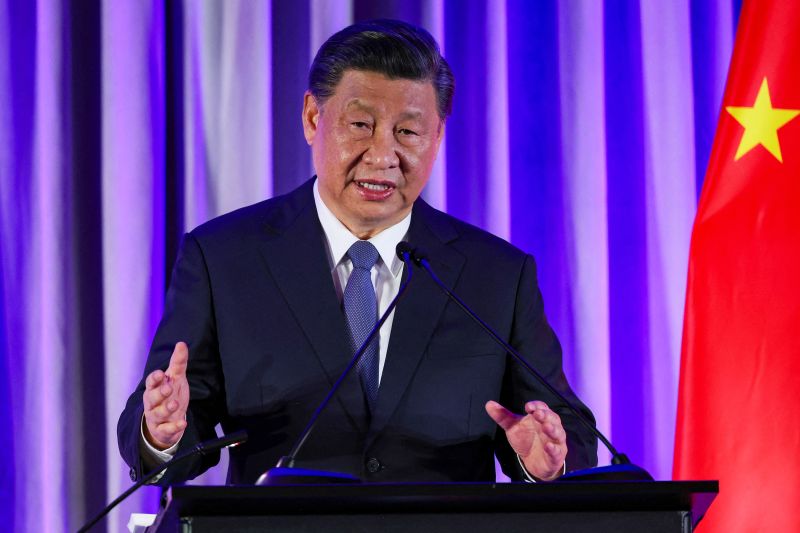
Tech Rivalry Thwarts Alibaba's Cloud Business Spin-off

Alibaba cancels cloud business spin-off due to US chip export restrictions, citing concerns over the division's future amidst uncertainties
Alibaba has canceled its cloud computing arm spin-off due to "uncertainties" caused by the tightening of US controls on chip exports to China. This decision was made shortly after a significant meeting between Chinese President Xi Jinping and US President Joe Biden aimed at stabilizing the sometimes turbulent relationship between the world's two largest economies.
Alibaba stated on Thursday that the newly imposed US restrictions could have a significant negative impact on the operations and profitability of Cloud Intelligence Group, thus raising concerns about the value of a separate listing for shareholders. As a result, Alibaba's US-listed shares plummeted by almost 10%.
The company expressed its commitment to developing a sustainable growth model for Cloud Intelligence Group amidst the changing conditions. Additionally, Alibaba acknowledged that these new restrictions may also have broader implications on their businesses by limiting their capacity to enhance their technological capabilities.
Alibaba, previously committed to listing its cloud unit as a standalone company, has been compelled to reconsider its plans due to the intensifying chip conflict between the United States and China. This dispute, ongoing for a year, revolves around China's access to cutting-edge semiconductors and the crucial materials and equipment required to manufacture components for various products, including smartphones, medical devices, and electric vehicles.
Last month, the US government implemented stricter export controls, which were first introduced a year ago, thereby limiting the semiconductor sales that American companies can make to China.
China, on the other hand, has implemented its own restrictions. In August, it placed limitations on the export of gallium and germanium, two crucial elements used in semiconductor production. Furthermore, shortly after the release of the most recent US chip restrictions, Beijing announced intentions to restrict the export of graphite, a vital mineral required for manufacturing batteries for electric vehicles.
China's President, Xi Jinping, addressed attendees at a dinner organized by the National Committee on US-China Relations and the US-China Business Council during the APEC summit in San Francisco on November 15, 2023.
China is interested in becoming both a partner and friend of the US, as stated by Xi to American CEOs. In stark contrast, this week showcased significantly amicable relations between the two nations. Biden described the talks held on Wednesday as "highly constructive and productive," highlighting his agreement with Xi to engage in dialogue via phone during moments of discord.
Xi, on Wednesday, held a meeting with American business leaders in San Francisco. Addressing the audience, which comprised of Tim Cook, the CEO of Apple, and Elon Musk, the CEO of Tesla, he emphasized China's willingness to establish a partnership and friendship.
Xi conveyed that both China and the United States should avoid engaging in a zero-sum game, wherein one's success comes at the cost of the other. Instead, he stressed the need to enhance people-to-people exchanges by constructing bridges and roads, rather than obstructing progress and fostering a negative atmosphere.
His comments were made during a period of declining foreign investment in China, coupled with a worsening property crisis and sluggish consumer spending.
Billionaire Jack Ma established Alibaba 25 years ago, and the company is currently undergoing a significant restructuring initiative. Initially, the plan was to establish six distinct divisions, each with its own CEO and board of directors.
On Thursday, the group announced a temporary halt in listing its supermarket chain, Freshippo, in order to assess market conditions. However, it reaffirmed its plans for an IPO of its logistics arm, Cainiao, in Hong Kong, without specifying a listing date.
Alibaba reported a 9% increase in revenues for the June-to-September quarter, reaching 224.8 billion renminbi ($31 billion) compared to the previous year. The net profit amounted to 26.7 billion renminbi ($3.7 billion), which marks a significant improvement from the previous net loss, primarily attributed to the rise in the value of the group's equity investments.












